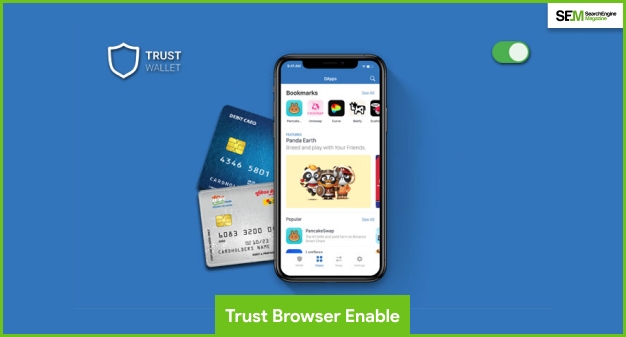What Does FS Mean In Text? Decoding The Social Media Lingo
Feb 17, 2026

Feb 17, 2026

Feb 16, 2026

Feb 14, 2026

Feb 13, 2026

Feb 13, 2026

Feb 13, 2026

Feb 12, 2026

Feb 12, 2026
Sorry, but nothing matched your search "". Please try again with some different keywords.


Since 2020, the number of data breaches has seen a significant increase, surpassing a thousand incidents.
Additionally, data leaks reached a staggering 156 million reports. These breaches and leaks are primarily caused by vulnerabilities in security systems, the presence of malware, and data errors.
Mitigating these risks can be particularly challenging amidst the growing trend of remote work and increased usage of digital services.
If you use VPNs for privacy or learn how to change passwords sometimes, that’s good, but not enough.
So, here are some tips on browsing safely on the internet with VPN security, its benefits, limitations, and more.
So, keep reading to know more!
If you are wondering how the VPN security helps with safe internet browsing, here is a list of best practices to follow—

Web browsers serve as the initial gateway to the internet across all devices. Developers regularly release updates to provide access to the latest web capabilities.
In recent times, websites are harnessing the power of HTML5 video and audio, advanced styling, and faster speeds to offer enhanced user experiences.
As a result of compatibility and security considerations, several sites have discontinued support for older browser versions.
When using certain browsers, you have the option to send a “do not track” request to websites.
Indicating your preference for them not to collect or track your browsing data.
However, it’s important to note that how websites respond to this request may vary. In most cases, websites and web servers do not change their behavior and may seem to disregard the request.
Despite this, expressing your desire to avoid being tracked is a positive initial step.
Your browser stores a lot of valuable information about you and is a tasty morsel for hackers.
For this reason, a VPN for browsers is important. VPNs strengthen online security at times, preventing data leakage and protecting against most cyber threats.
For example, if your main browser is Firefox, then install a VPN for Firefox as an add-on.
By adding a time-tested VPN to your browser, all your connections from it will be encrypted and protected. At the same time, applications and programs will work in a standard way.
If we were asked to recommend a VPN, it would be VeePN. It has strong 256-bit encryption, 2500+ servers, and all modern security technologies are implemented.

According to recent statistics, approximately 24.7% of Wi-Fi hotspots worldwide do not employ any form of encryption.
This poses a significant risk as it allows hackers to intercept network traffic, distribute malware, and gain unauthorized access to users’ devices.
In some cases, cybercriminals even go to the extent of setting up cloned networks to deceive unsuspecting users and compromise their computers.
To safeguard yourself against such cyberattacks, it is advisable to avoid using public Wi-Fi whenever possible and rely on your mobile data instead.
In situations where there is no alternative, it is crucial to enable the “Always Use HTTPS” feature on your web browser. You can achieve this by installing a browser extension like HTTPS Everywhere.
If websites choose to track your browsing data, you have the option to minimize the impact by regularly clearing your browser cache and removing unwanted cookies.
This helps prevent ads from following you around the web and ensures you have the most up-to-date version of web pages.
Most major browsers allow you to do this manually, but there are also software options available that can automate the process, making it more convenient for you. It might be worth considering whitelisting the sites you frequently visit to save time on having to re-enter login details.
Two-factor authentication offers an additional layer of security to the sign-in process. It safeguards your account by linking your browser activity and usual login location.
If someone attempts to sign in from a different location, your browser will notify you and seek your confirmation. This can be through email, instant message, or a pop-up on another device connected to the same account.
Thus, even if someone knows your password, they can still be prevented from accessing your account. To enable two-factor authentication on Chrome, simply access your Google account settings.
From there, navigate to the security section and follow the prompts.

It is crucial to avoid reusing the same password across multiple websites due to the high risk of password leaks that occur during website hacks.
To minimize the potential damage caused by these leaks, it is recommended to utilize unique and strong passwords for each site. Strong passwords should be long, unpredictable, and include numbers and symbols.
However, memorizing strong passwords for numerous websites can be nearly impossible. This is where a password manager becomes invaluable.
Password managers encrypt and securely store your login information for all the websites you use, ensuring enhanced security and ease of use.
Desktop pop-ups from your operating system are something we all encounter. However, you’ll be glad to know that web browser pop-ups can often be disabled.
These pop-ups are usually designed to open new browser windows and display advertisements. While many of them are simply irritating, some can actually contain harmful links or inappropriate content.
Fortunately, most web browsers come equipped with filters that automatically block these pop-ups. Plus, you have the option to allow them for trusted sites where they might be beneficial.
Even though a VPN security service offers massive benefits, it comes with a set of challenges and limitations. Making it not a standalone internet security solution.
So, here are some of these challenges and limitations of VPN services—
So, to get complete network protection, users need to combine a strong antivirus and firewalls with the VPN service.
Now, knowing about the VPN security services is not enough. Rather, choosing the right one is the key to having a secure network connection.
So, here are the factors to consider to find the right VPN service—
Securing your web browser involves several crucial steps. It is important to keep your software up to date, enable “do not track” requests, install VPNs, and use two-factor authentication.
Additionally, regularly clearing your cache and cookies and ensuring a secure internet connection are essential measures to protect your online security.
Implementing these precautions will significantly enhance your browsing safety.
Here, I have broken down some of the common questions around the VPN security services that users often look for before choosing one.
Generally, free VPN services are not safe. That is, as a free service, they lack the strong data encryption techniques and mechanisms.
Moreover, the free VPN services often sell user data to third parties to maintain their ‘free’ service. And, this can put the safety of the user at risk on the internet.
Yes, absolutely. Since VPN services reroute internet traffic, they typically slow down internet speed by 10% to 20% on average.
However, high-quality VPN services often offer robust encryption models and high-end servers that mitigate this impact on speed.
So, users can safely browse the internet without compromising on speed.
No. Since a VPN service typically offers protection against third-party tracking, data interception, and network-based cyber threats, it is not a complete solution.
That is, there are other aspects that VPN do not protect against, like— malware, phishing attacks, tracking cookies, or data breaches.
So, users need to combine anti-virus software and firewalls along with the VPN service to add a multi-layered security approach.
Read Also:
Chandrima is a seasoned digital marketing professional who works with multiple brands and agencies to create compelling web content for boosting digital presence. With 3 years of experience in SEO, content marketing, and ROI-driven content, she brings effective strategies to life. Outside blogging, you can find her scrolling Instagram, obsessing over Google's algorithm changes, and keeping up with current content trends.
View all Posts

